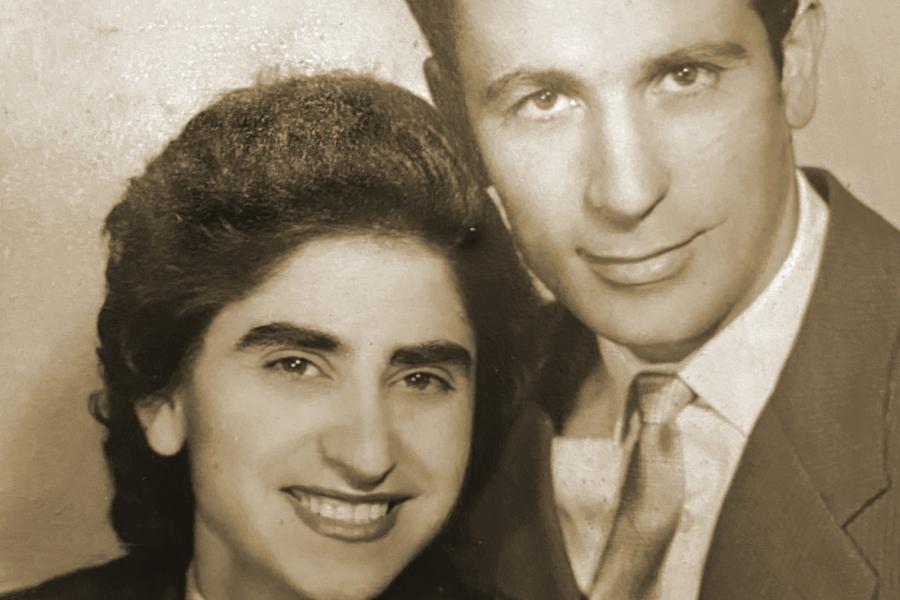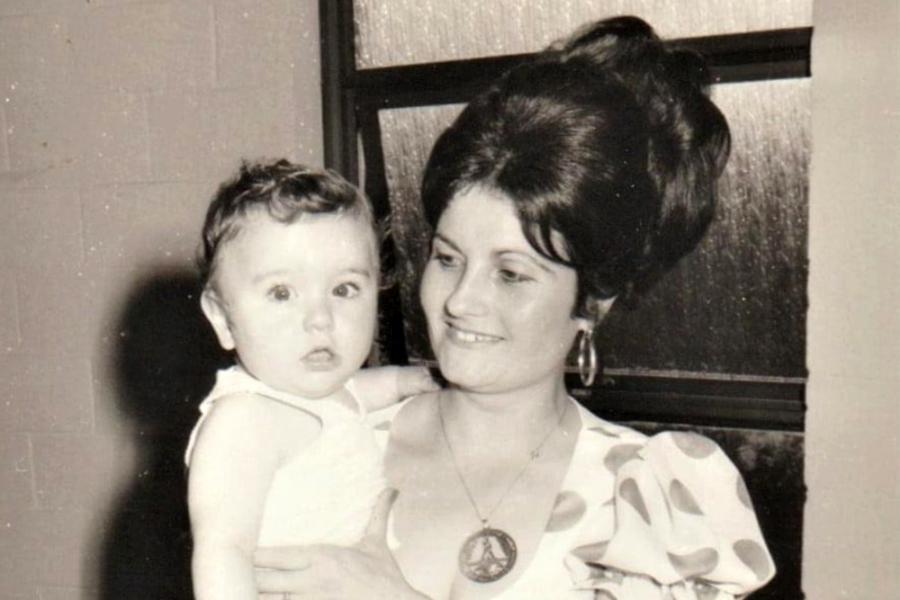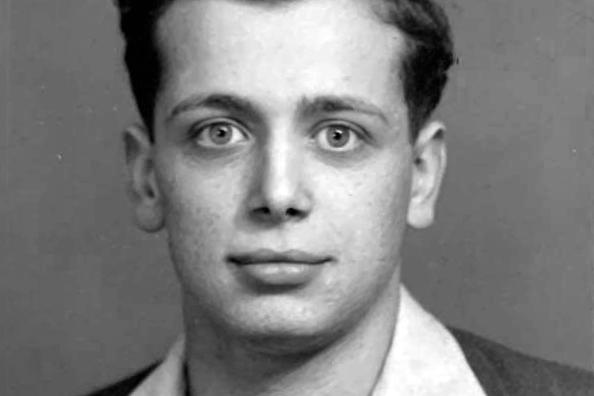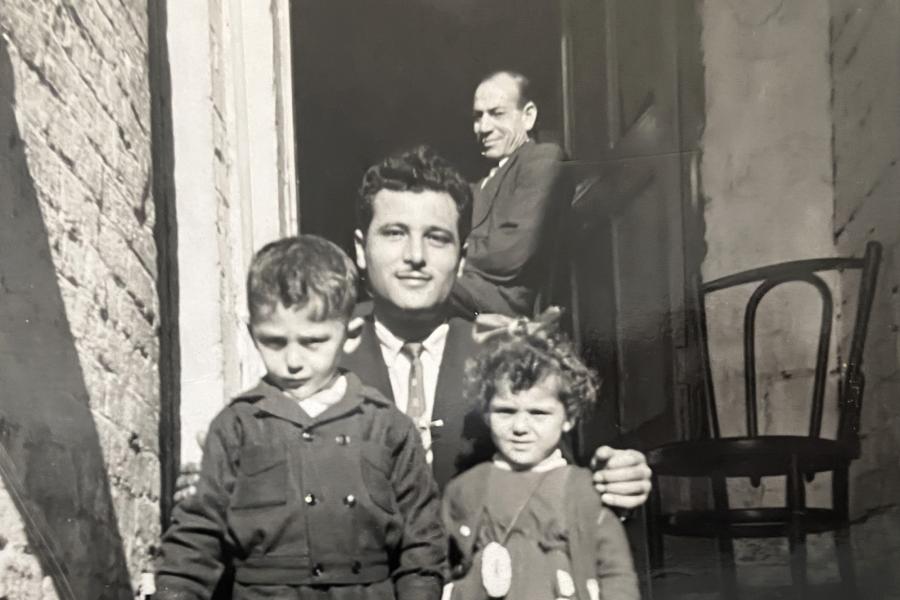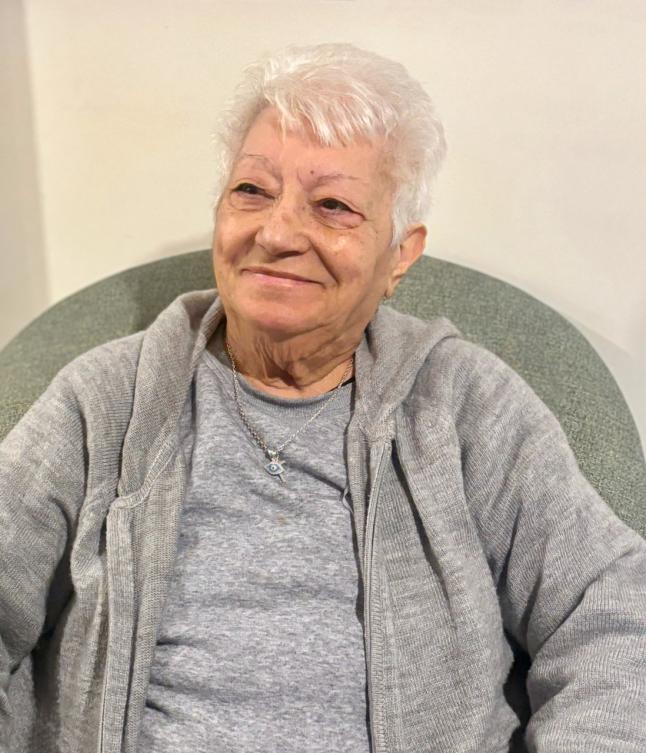

Speaker background
Antonia Athanassiou was born in Alexandria, Egypt in 1936. After the death of her father when she was eleven years old, Antonia was raised by her mother and grandparents. Antonia completed her primary schooling, but due to financial hardship was unable to attend high school. She attended a dressmaking school where she developed skills in making high-end garments. At the age of 21, she married by ‘proxenio’ and had a son and daughter soon after. The family struggled in Egypt under the regime of Gamal Nasser and decided to migrate to Sydney in 1962. Antonia worked in various jobs including her night work as a musical entertainer. She accompanied her childhood friend ‘Nikitas’ who played the bouzouki and the pair became a popular duo on the Greek night club scene in the 1960s performing regularly at Elatos, Vrahos and Athena.
Interview summary
Antonia talks about her early days in Alexandria and the early death of her father. She recounts her first years in Sydney where she worked three jobs to make ends meet. She also describes her passion for music and recounts how she became a popular Greek night club singer in the 1960s.
Interview highlights
highlight
Antonia describes her busy work schedule which, due to her work as a Greek nightclub singer, started early and ended late.
Antonia: We came in July and in November my sister-in-law put her house up as security so we could receive three thousand pounds. This helped us very much as it squeezed us both. As a married couple we were squeezed, and we needed to work two jobs.
Interviewer: What sort of work did your husband do?
Antonia: He worked in the Bank of New South Wales as a clerk helping Greeks get loans and things like that. I, in turn, was able to do another job. In the morning, I was working early at 7 am as a seamstress, and I’d finish at 2:30 pm. I’d take the bus and get off at Rozelle. Across the road from the bus stop there was a milk bar which belonged to Manou, people who helped me very much and I don’t know how to thank them wherever they are.
Interviewer: How did they help you?
Antonia: They gave me a job. I worked from 2.30 pm to 7.30 pm.
Interviewer: What job did you do at the milk bar?
Antonia: I served customers. I made coffee and tea. I did everything. Then, when I left at 7.30 pm, I’d go to the hairdresser to get my hair done. Then I’d go home to get dressed, kiss the kids goodnight and I’d leave to go to the music and song.
Timecode 15:58 - 18:03
highlight
Antonia recalls the acclaim she and her musical partner, Nikitas, received from the Greek community.
Antonia: Oh yes, I was expecting it. I was expecting it because I loved the music so much and Nikitas was the only person who could tell me to learn a particular song. He’d tell me to learn the song if I didn’t already know it. I didn’t know anything about musical notes. I never read notes. I only listened with my ear. I’d go home and learn this song and that song. I’d read it a few times and we’d go and rehearse at Vrahos and end up coming first.
Interviewer: In your opinion, what did music and the night club scene mean to Greek migrants in the ’60s?
Antonia: For the Greek migrant it was something which enabled him to open up his heart. They left Greece and came here with no mother, no siblings, no one. And at the Greek nightclub Vrahos they were able to find some love, some affection, an intravenous drip to rid themselves of the pain and suffering they had inside them.
Timecode 25:17 - 26:35
highlight
Antonia recalls the popularity of songs by the prominent Greek singer Stelios Kazantzidis. She says he captured all the emotions of the Greek diaspora during those difficult post-war years.
Antonia: Nikitas would get down on one knee and play the bouzouki and people would dance. The person who wanted to listen to this song would be crying. I remember many young men who were crying when we played one of Kazantzidis songs ‘Life Has Two Doors,’ which contained so much pain. The night would not end unless we played this song.
Timecode 30:50 - 31:29
highlight
Antonia recalls the time in 1966 when she and her band appeared on ABC television. She says it was the first Greek performance on national television, and it inspired many non-Greeks to appreciate Greek music and attend the nightclub, Vrahos.
Antonia: I sang ‘Ta pedia tou Pirea.’ On that day I can say there were more people present at the ABC than there was at the parade which was happening at Martin Place. The ABC was full of people. Just think the Australians got dressed as evzone soldiers and they followed me. I was showing them the moves when I was singing . And at the end, one of the Australians dressed as a Greek soldier picked me up and raised me really high and, even he, was crying.
Timecode 40:10 - 40:52
